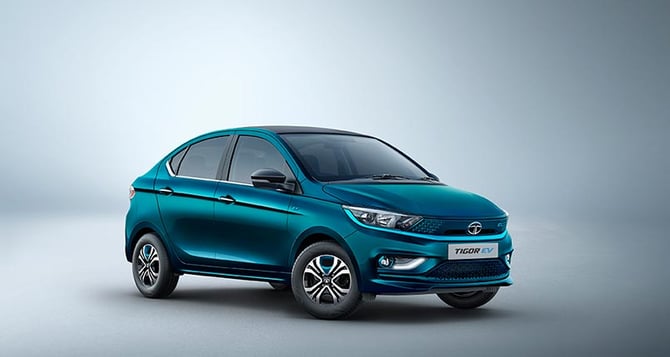Tata Takes Frugal Approach to Making Electric Vehicles

India's Tata Motors is taking a frugal approach to entering the electric vehicle (EV) market. The company makes a little more than 100 EVs a day at its Pune plant, with many processes being carried out by hand to save money.
Competitive protectionism from the Indian government has kept out rivals like Tesla, allowing Tata to make affordable electric cars for an extremely cost-conscious population.
Tata’s flagship Nexon EV costs around $19,000, less than half the price of the lowest Tesla model. The Nexon is not necessarily a cheap car in India, but it is affordable for the upper-middle class.
Tata commands 90% of India's electric car sales, giving it an all-important first-mover advantage even if EVs account for only 1% of the overall auto market.
The company wants to launch 10 electric models by March 2026. This financial year alone, it wants to quadruple EV production.
However, there are challenges down the road. For example, the government wants 30% of all cars sold in the country to be electric by 2030. Dangerous competitors, like Hyundai and Kia Motors, have plans to enter the market before then.
What does this mean for me?
It can be easy to think that every big brand in the world works with unlimited budgets and conducts research and development at warp speed.
As an emerging market investor, you will know that there is often a different path to profitability. Tata’s EVs will be competitive in its home market, and this could become a highly profitable segment in the medium- to long-term.
More News

Trump Drops Selected Tariffs in Response to Inflation Pressures

Tariffs on Mexico Test Nuevo Leon’s Industrial Momentum

US Moves to Ease Latin American Tariffs as Food Inflation Mounts

Japan Faces First GDP Shrinkage in Six Quarters as Tariffs Bite

India’s Inflation Dip Strengthens Case for RBI Easing

Europe Rallies as Shutdown Eases, Earnings Impress

Germany’s Trade Surplus Slides as Imports Outpace Exports
